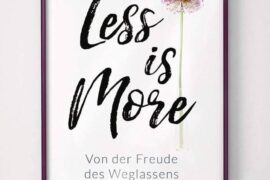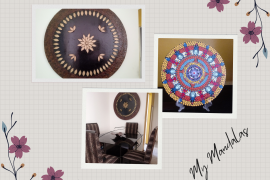In our modern life, it’s crucial to recognize what’s urgent and what’s important in our lives.
What’s the difference beetwen urgent and important matters?
Urgent things are those ones that have to be done now, that immediately affect us. Usually, they come from nowhere. They are the expectations and priorities of others. It might be an important thing for them, but it’s just an urgency for you. As Stephen R. Covey says in his book 7 Habits of Highly Effective People: urgent things are pleasant, easy, fun to do but most of the time are unimportant! It’s the kind of thing that sparks a rush of dopamine and brings us momentary pleasure.
When your phone rings it’s an urgent thing, I would wager a guess that you, just like me, feel uncomfortable letting it ring and checking it later.
On the other hand, important things have to do with results. They are aligned with our values, things that bring meaning to our lives.
But how to avoid these traps in your daily life?
The first thing is to be aware of this. I highly recommend you practice any mindfulness activity. What might help you is meditation. Meditation helps us to be present, to calm down thoughts, and let things become more clear. So, once you recognize that something is urgent but not important you can set up a time for that thing later on.
I’ve been meditating for a couple of years now. Here are the benefits of it in my life and why you should practice it.
That said, let’s dive into what can make you be more focused:
1. Settling daily intentions
When the day starts off, most of the time we don’t have a clear idea of what to do, so we follow the flow of the day, our routine: working, cooking, eating, chatting, browsing on the internet, checking phones, and so. At the end of the day, you might feel unfulfilled because you don’t feel that you have done things that bring meaning to your life, things that bring that feeling of accomplishment. Certainly, It happens because you did it on autopilot. In contrast, when you deliberately choose what to do, you feel happy and accomplished because you took little steps forward to a meaningful life as your intentions usually are aligned with what brings value to your life.
Setting intentions for the day, you will prioritize things that really matter for your life, things that at the end of the day you will feel that that day was worth it.
I’m used to set up three intentions per day. Once I’ve settled them, I feel like my day was productive. I can appreciate and praise myself for doing what I had set out to do.
It helps me to ease the stress in my mind. When I don’t set intentions, it seems that what’s done never is enough, I caught myself hunting for the next thing to be done, which makes me anxious. Not to mention that sensation that I’m missing out on something.
2. Settling time for social media.
If we don’t set a time for social media, we might spend hours and hours on social media unconsciously. It hijacks our focus, energy, and brings more burn out to our lives, at the end of the day, it doesn’t aggregate worthy values.
I noticed that after setting time for social media I prevented myself from this uncanny feeling that I was spending my time unwillingly.
When I check my messages it happens more deliberately. I know that I have purposes regarding that. I’m aware that I have a couple of minutes to check and reply back to them. It helps me to be more focused, and most importantly, it helps me to be more effective, I know what I have to do and for how long it might take.
3. Timing yourself
Managing time is one thing, managing attention is another thing altogether.
After tracking my activities I noticed that when I set a timer for a specific project, I’m fully present on that task because I purposely set a time for that activity, I know that the clock is ticking and I must make the most of it.
I use the Boosted productivity app to track most of the activities (There’s a similar one called ATrackerfor iOS). For example, reading, listening, working out, watching a TV series, personal stuff, working, and so on..
For some activities, I set up a timer of 20 to 30 minutes. In other activities, I simply tap on the project and the app starts to track when I finish it I tap again and it’s registered. It gives an overview of how I spend my time.
The app has a calendar and reports. So, I can see how many days I exercised, if I read or watched a tv series more, what activities I let aside. What projects I prioritized that week, and what I’ll prioritize in the next week. Anyways, it helps to track where and how I’m spending my time.
4. Hide icons app on your phone.
It’s needless to say that to avoid distraction you should turn off the notifications on your phone.
One day, Jim Kwirk, author of the book Limitless, said something on his podcast that stood out in my mind. (I’m paraphrasing) “When you let the notifications on your phone on you’re training your brain muscles to distraction.” What a strong statement. Imagine, all we want is to make the most of our time and our phone notifications are training our brain for distraction, it’s counterintuitive.
Even though I’ve turned off notifications on my phone (both sounds and banners), from time to time I caught myself fiddling around with it, browsing through some apps on autopilot without any good reason. Especially those apps with a red circle like WhatsApp, Telegram, Facebook, and Instagram.
Sometimes, those messages come with some sad news that makes me upset and consequently unfocused. But what broke the camel’s back was when I was doing, literally, nothing, just scrolling down and checking friends’ photos’ and feeds. I felt empty after catching myself doing that. It was hijacking precious time of my day.
So, I had the idea to hide most of the app icons on my phone. Only the apps that I use every day are shown and don’t push me into automatic action. I’m in charge. I use them, not the other way around.
Here’s my phone screen:
It was liberating. Now, I don’t catch myself randomly grabbing my phone. As I need to take action to show the app on my screen I created a barrier that requires extra effort and it gives me time to ask myself the reasons behind that action. If it’s what I’m really intending to do. When I don’t have a good reason, I say to myself, “not now, you can check it another time.“
So, this way I feel that I’m on the right path to a rich and meaningful life.
I’d love to hear from you.
Which of these tips you can give it a shot to be more focused? What have you been doing to keep your focus on track?
Thank you for reading.
See you next time.




2 Comments
Wow!!! What an amazing tips! I really need it now. I’ll try to write down my intentions every single day. Setting time for social media is also awesome. Sometimes, I spend too much time for it and it need to be controlled.
Thanks for sharing!
Hey Dan. Thanks so much for sharing your thoughts. Glad you liked it. =)